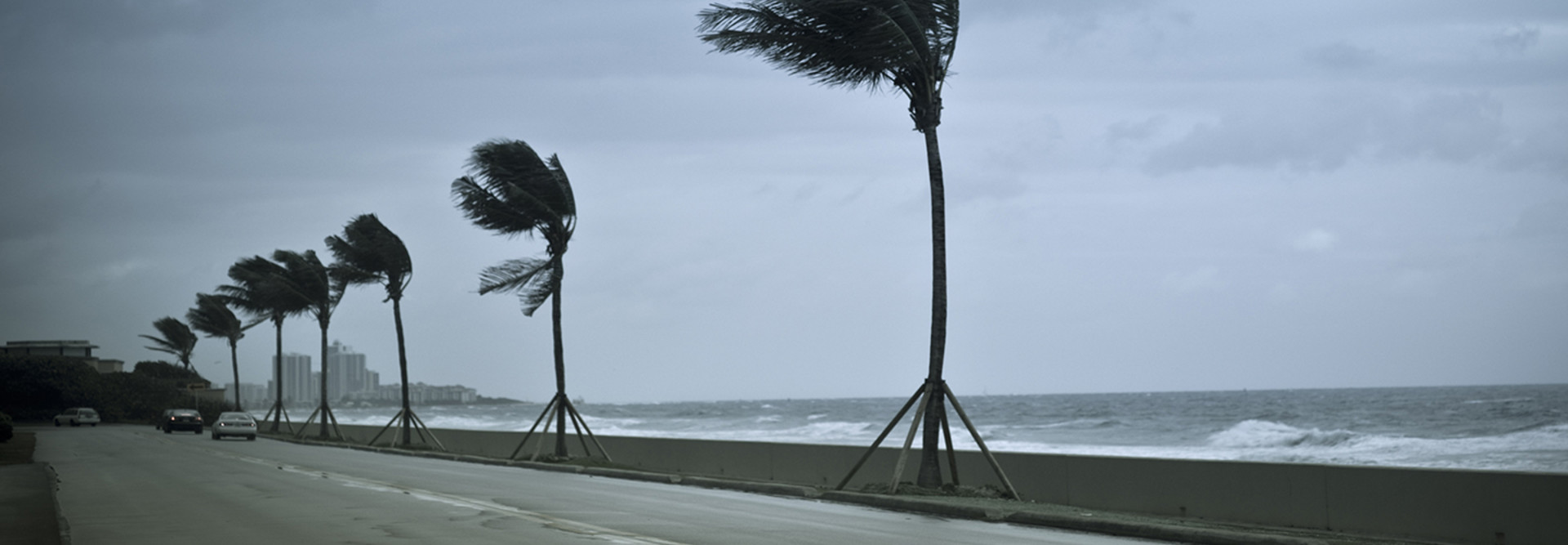Atlantic Beach, Fla., Upgraded Its Phone Systems to Withstand Storms
The City Hall in Atlantic Beach, Fla., sits about half a mile away from the Atlantic Ocean. It is a city that knows about hurricanes and how to survive them.
As the June 1 start of the 2019 hurricane season approaches, with the National Oceanic and Atmospheric Administration predicting a “near normal” season with two to four major storms, Atlantic Beach’s history offers some key lessons to other seaside communities.
Atlantic Beach upgraded its phone system over the past several years to a Voice over IP-based system from Mitel, gaining flexibility and resiliency in the process, according to Keith Randich, IT director for the city. When Hurricane Matthew devastated Haiti and pounded the Southeastern United States in 2016, the city had to evacuate all of its residents and municipal employees. Thanks to its upgraded network, it was able to maintain communications, even though the city lost power during the storm.
Atlantic Beach Identifies a Need to Upgrade Its Network
Randich was named IT director of Atlantic Beach in December 2005, and to his knowledge, city government communications have only been totally knocked out once overall, during a tropical storm.
Before it upgraded its phone network, the city had a central exchange phone system provided through AT&T.
“It was an entirely analog system that had been in there since City Hall was built,” Randich says in an interview with StateTech.
About a year or two after he arrived in the city, Randich and his small IT team (there are two other staff members) explored upgrading the city’s phone system. At the time, however, Randich was not eager to upgrade to a VoIP-based system, because the city’s network was unreliable. The network was widely distributed and constructed from a hodgepodge of equipment.
So, Randich spent the next several years upgrading the network firewalls, routers and switches to gear from Cisco Systems. The city also installed a SolarWinds monitoring system.
The old phone system did not offer a lot of basic telecom capabilities, such as call forwarding, conference calls or the ability to forward voicemails. Randich says the system was dependable, though, and stayed in operation even if the city lost power during a storm. AT&T also provided solid technical support.
However, by 2015, Atlantic Beach decided it needed a more modern communications system. It worked with a local reseller to pick a system and went with the Mitel MiVoice Connect solution.
The city’s disaster recovery plan called for the IT team to set up shop in a school 15 miles inland that would serve as an emergency shelter, but Randich says it was not an ideal location to run all of the city’s servers and workstations. So, the city decided to rent space in a data center colocation site and placed its email servers and enterprise applications there. Atlantic Beach decided to host the Mitel system in the colocation site as well.
“During a storm, we forward people’s office phones to their cell phones,” Randich says. The city’s police dispatch also moves offsite during a storm, to the Jacksonville Sheriff’s Office, Randich says.
“We have the capability when a storm is impending to continue to take calls at this colocation site and then forward the calls to dozens of different remote locations,” he says.
Atlantic Beach Gains Ability to Communicate Better During Storms
Atlantic Beach installed 85 VoIP-based phones, according to Randich. Having the ability to run the Mitel system from the colocation site gives Atlantic Beach more flexibility when a storm hits.
Typically, when a storm is predicted of a certain level of seriousness, Atlantic Beach forces residents to evacuate. “By having our website, email and phone system outside the city, we’re able to communicate with our citizens throughout the storm, even if we’re nowhere near the city of Atlantic Beach,” he says.
During past evacuations before the colocation, Randich says, the city would “totally be without communication with our citizens from probably four hours before the storm arrived until maybe a day or two after the storm passed. We weren’t even able to tell people when it was safe to come back to the island.”
Now, Atlantic Beach has the “ability to keep them up to date, to take calls from them, to take emails from them the entire time that the storm is on its way here and even in the days after the storm. It’s a really big deal.”
Hurricane Matthew represented the first time Atlantic Beach had to evacuate not only all of its residents but all city employees as well, according to Randich — including police officers for the worst parts of the storm.
“Even though we had lost power here, it was the first time we were able to communicate throughout,” Randich says. “We listed all of the messages to the citizens about the track of the storm, when we had public works people clearing streets and the expected completion time for all that type of work.”
All of the city’s phone calls were routed through the Mitel system offsite, he says. “It was the first time that we were able to operate just like we were seated at our desks in the city,” he says. City employees did their work from home, Randich says.
The SolarWinds monitoring system could tell Randich when each of the city government’s buildings lost or regained power. The system also monitors all of the city’s network infrastructure — its switches, routers, firewalls and servers.
Different municipalities near Atlantic Beach are “taking a look at similarly sized environments and systems,” Randich says.






.jpg)



